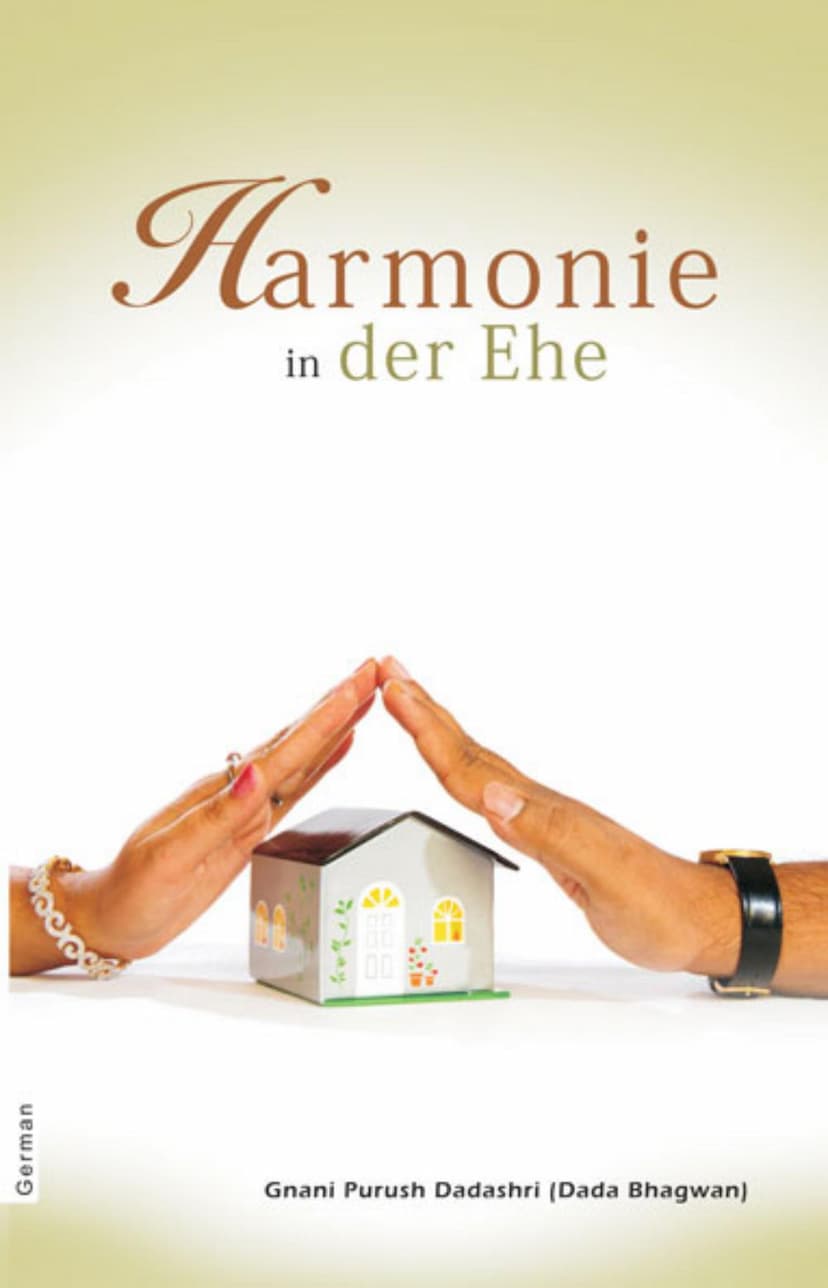Harmony In Marriage German
Added to library: September 1, 2025

Summary
Here's a comprehensive summary of the Jain text "Harmony in Marriage" by Dada Bhagwan:
Core Message and Philosophy:
The book, "Harmony in Marriage," is a German translation of discourses by Param Pujya Dadashri (Dada Bhagwan), a Gnani Purush (Self-Realized being). The central theme revolves around achieving harmony and understanding in marital relationships through the practical spiritual science of Akram Vignan. Dadashri emphasizes that true happiness and spiritual progress can only be attained by understanding the self and living in accordance with divine principles, even while navigating worldly life.
Key Concepts and Teachings:
- Akram Vignan: This is the direct, step-less path to Self-realization revealed by Dada Bhagwan. It is described as a shortcut to liberation, making profound spiritual understanding accessible within a short period.
- The Gnani Purush (Dada Bhagwan): The book introduces Dada Bhagwan as a fully Self-realized soul who acts as an instrument for humanity's liberation. He clarifies that "Dada Bhagwan" is the inner Lord residing within him, and this Lord is present in everyone, though fully manifested only in the Gnani.
- Self-Realization (Atma Gnan): The ultimate goal of life, according to Dadashri, is to realize one's true Self, the soul. This knowledge can only be obtained through the grace of a living Gnani.
- The Nature of Marriage and Relationships:
- Partnership, Not Ownership: Marriage is presented as a partnership, not a master-servant relationship. Husbands are advised not to be dominant or act as "bosses" to their wives.
- Understanding and Acceptance: Harmony arises from understanding and accepting one's spouse, rather than trying to change them. The book stresses the importance of adapting and being flexible.
- Avoiding Conflicts (Kalesh): Conflict is seen as a major impediment to happiness and spiritual progress. The teachings provide practical guidance on how to prevent and resolve disputes.
- The Role of Ego: Ego is identified as a primary cause of marital discord. Letting go of the ego and embracing humility is crucial for a harmonious relationship.
- Love vs. Attachment (Moha): True love is selfless and constant, unlike attachment, which is conditional and fleeting. The book distinguishes between these two states.
- The Law of Karma: Every action, driven by intention, binds karma. Understanding the law of karma helps one accept the current circumstances and avoid creating new negative karma.
- Pratikraman: This is a recommended practice of seeking forgiveness and making a firm resolve to not repeat mistakes. It is presented as a powerful tool for resolving conflicts and purifying one's consciousness.
- Respecting Each Other's Space: Men and women are encouraged to respect each other's domains and avoid unnecessary interference in each other's affairs.
- The Importance of Gratitude and Appreciation: Expressing gratitude and appreciation for one's spouse fosters a loving and harmonious environment.
- The Role of Women: While acknowledging societal norms, Dadashri elevates the nature of women, likening them to goddesses and emphasizing their inherent strength and potential for spiritual growth. He also addresses common marital issues from a woman's perspective.
- Dealing with Differences: The book advises on how to manage differences in opinions and desires, suggesting compromise and mutual understanding.
- The Nature of Sex: Sex is discussed in the context of worldly interactions and spiritual progress. While acknowledging its role in procreation, it's presented as a potential hindrance if not managed with awareness and control, emphasizing the importance of monogamy and purity of thought.
- Divorce: Divorce is generally discouraged, especially when children are involved, as it creates further karmic entanglement. Harmony and adjustment are preferred over separation.
- The "Museum of Life": The world and its relationships are likened to a museum, where one can observe and experience without getting overly attached or developing aversion.
Practical Advice and Guidance:
The book offers a wealth of practical advice for husbands and wives, addressing common marital issues such as:
- Complaining about food
- Criticizing each other's habits
- Managing disagreements
- Dealing with anger and pride
- The impact of marital conflict on children
- Financial management within the family
- The importance of open communication and honest expression of feelings
- The role of ego and how to overcome it
Overall Tone and Purpose:
The teachings of Dada Bhagwan are characterized by their simplicity, directness, and practicality. "Harmony in Marriage" aims to provide readers with the spiritual knowledge and tools to transform their marital relationships, leading to inner peace, happiness, and ultimately, spiritual liberation. The book is not just about improving a marriage but about understanding the true nature of the self and all relationships.